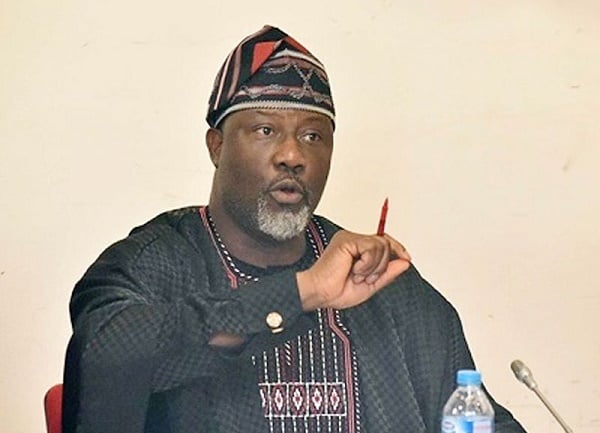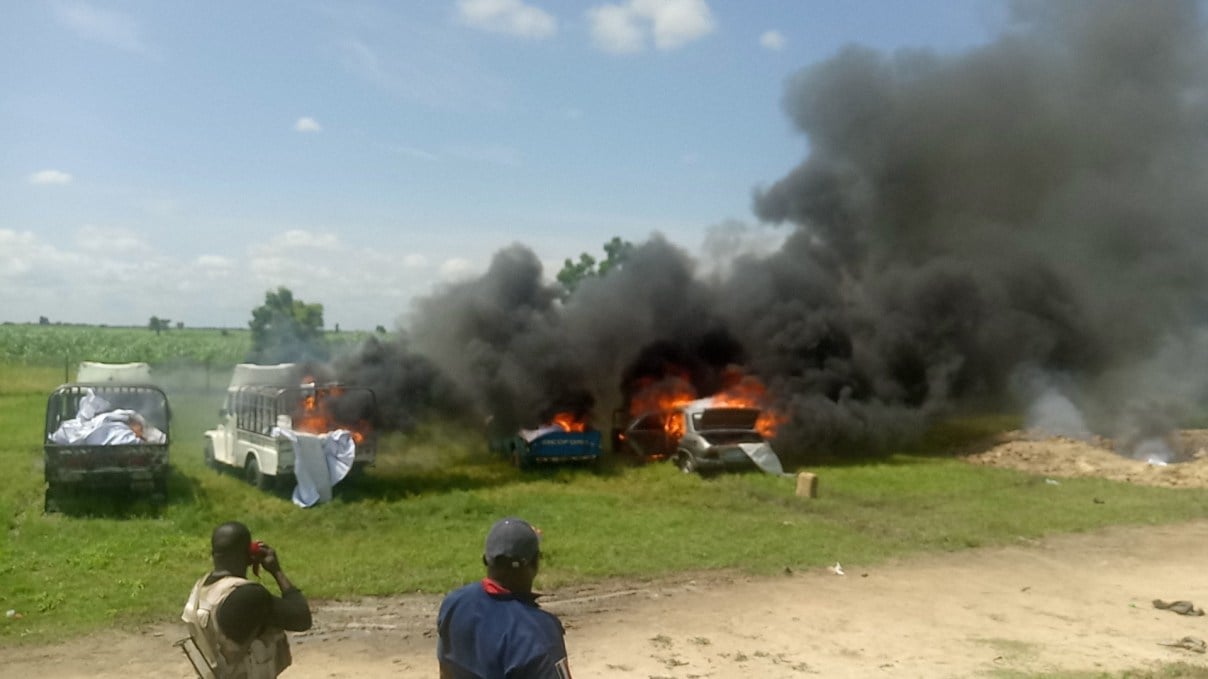The Cameroonian security post; here, the officers "do not tolerate nonsense"
On July 12, I travelled to Ikom local government area in Cross River state where most of the Cameroonians who escaped the crisis in their country are taking refuge in Nigeria. At the settlement camps, I listened to tales from the refugees about life beyond the borders; so, curiosity got me thinking of the kind of activities that would be going on along that route. I spoke with a local motorcyclist on the possibility of crossing the border and we set out on that eventful journey the next day.
Joseph Mbom, the motorcyclist who doubled as my fixer, blared the horn as he sped through the bumpy road towards Mfom, the Cross River community which holds the boundary with Cameroon. On this daring foray, different thoughts raced through my mind. Would this be a journey of no return? But here lies one of the channels through which smugglers employ various tactics to bring in all kinds of items into the country. Nevertheless, we moved on as I kept my gaze on the mirage.
Within 30 minutes, we arrived at what serves as Nigeria’s border with Cameroon, after our motorcycle had danced through a total of 24 checkpoints littered along the road and manned by all manner of security operatives, including military and paramilitary officials, with local vigilantes leading the way.
It was until I approached the border that it occurred to me I might be looking for problem — I had no papers for such trip except my official work and national ID cards. I did not even have answers ready for possible interrogation.
Advertisement
‘RELAX. TELL THEM YOU WANT TO QUICKLY COLLECT SOMETHING’
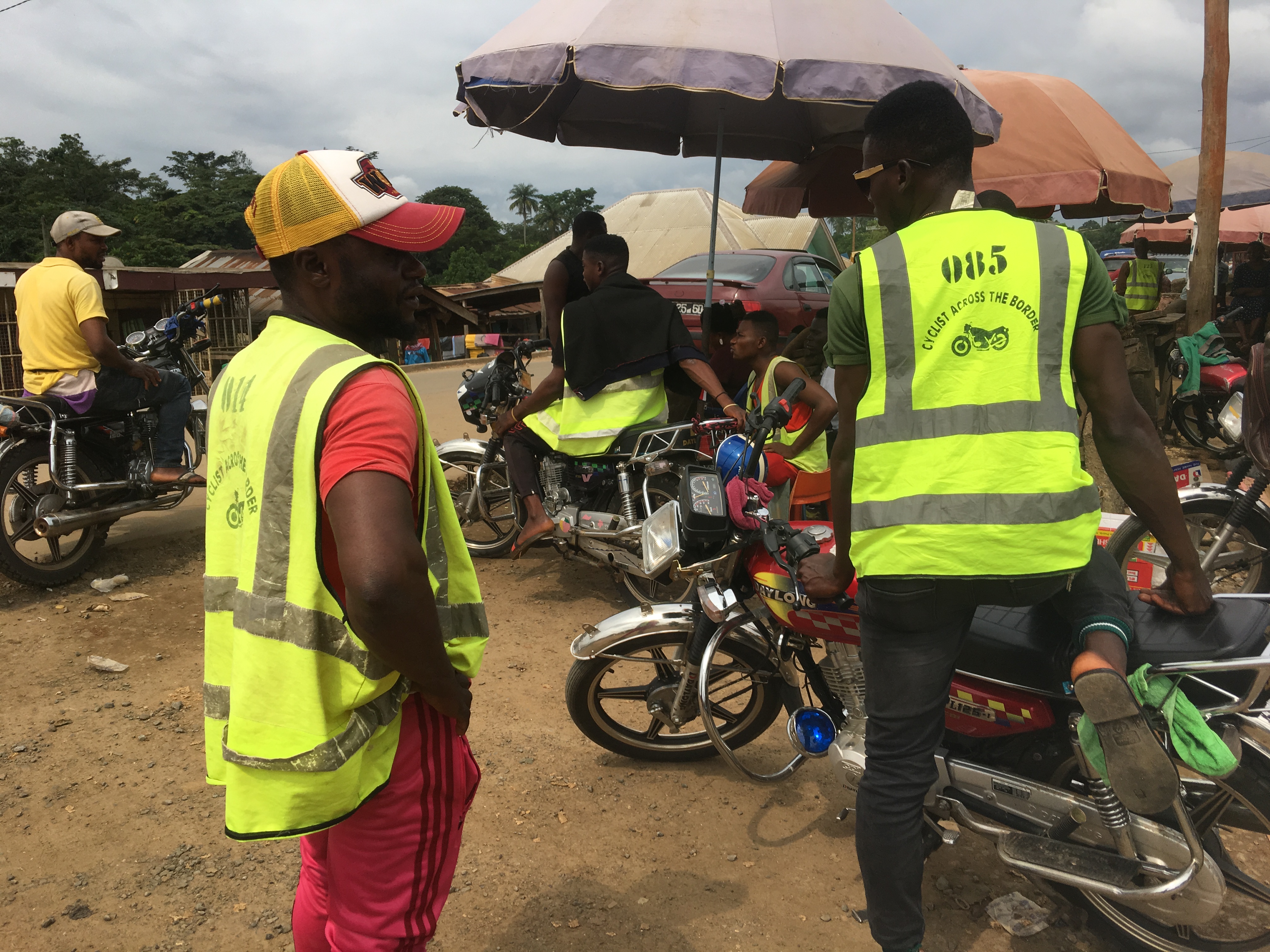
Mbom probably sensed my anxiety which made him ask, for the first time, what I was going to do. “I need to go and see someone,” I muttered, certain that my reply was far from convincing. “Okay, just relax,” he responded. “When you get there, tell them say you wan quickly collect something and return; say you no dey travel. Just act like a guy man and be moving, if you waste time they go suspect something and stop you.” Talk about knowing your onions.
While walking towards the Nigerian officials standing by the pedestrian gate, I could feel my heartbeat now at a very high rate, more than double the average 60 to 70 beats per minute. This was also when all sorts of headlines from a possible outcome of the journey were flashing through my mind: “TheCable journalist detained for attempting to illegally enter Cameroon”, “Journalist among 20 nabbed for border crimes”, “Immigration parades Nigerian journalist for alleged smuggling”. To say I was anxious is an understatement.
Advertisement
To my utmost surprise, however, the officers did not go beyond asking me where I am from and where I was headed to. Same scenario played out at the second post where the Cameroonian officials were stationed, except this time they looked more stern than the Nigerian officials and was bent on knowing who I was. I was done from the two security posts — just about 20 meters apart — in less than five minutes and within another 10 minutes, arrived Cameroon. For the next hour, I did particularly nothing except taking notes and pictures.
At Ekok, the first Cameroonian community after the border which was where we had stopped, I was amazed that virtually all of them were Nigerians, including the traders and residents in the area. “Most of them here are Nigerians doing business there, especially the Igbos,” one of the drivers I met told me.
You are free to stay in Ekok for as long as you want but going further into Cameroon would require proper documentation from their immigration officers.
‘UNLIKE NIGERIANS, THEY DO NOT TAKE BRIBE’
Advertisement
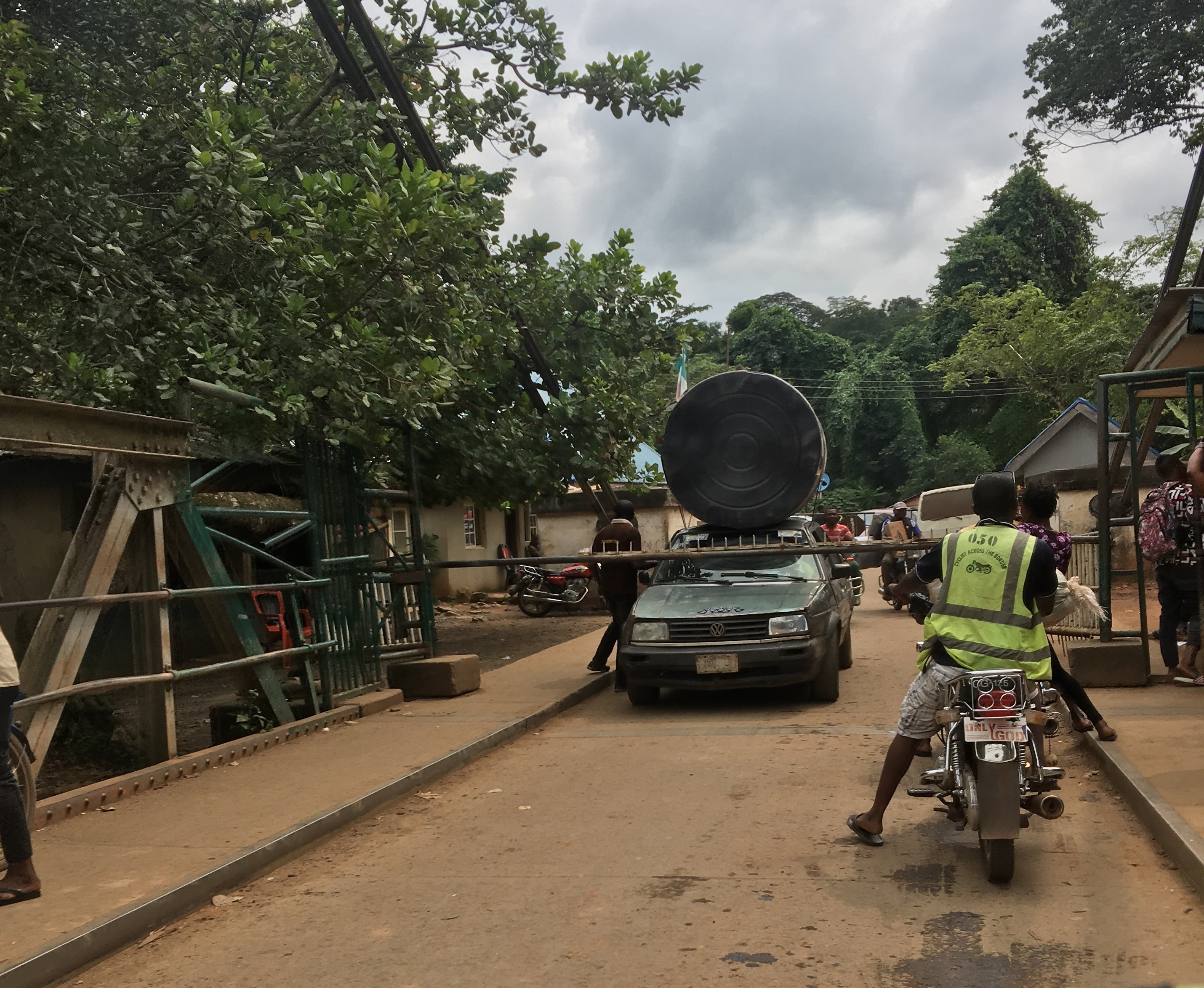
“If you are okay and not having anything like bullets, they will allow you to go. But when they discover such, you are in trouble,” the driver said.
“They will take you inside and beat you well. And you know their own life is somehow, they find it difficult to understand; they are not like Nigerians that you can easily say ‘officer, take (makes a gesture of offering money)’. They prefer you do it the direct way.”
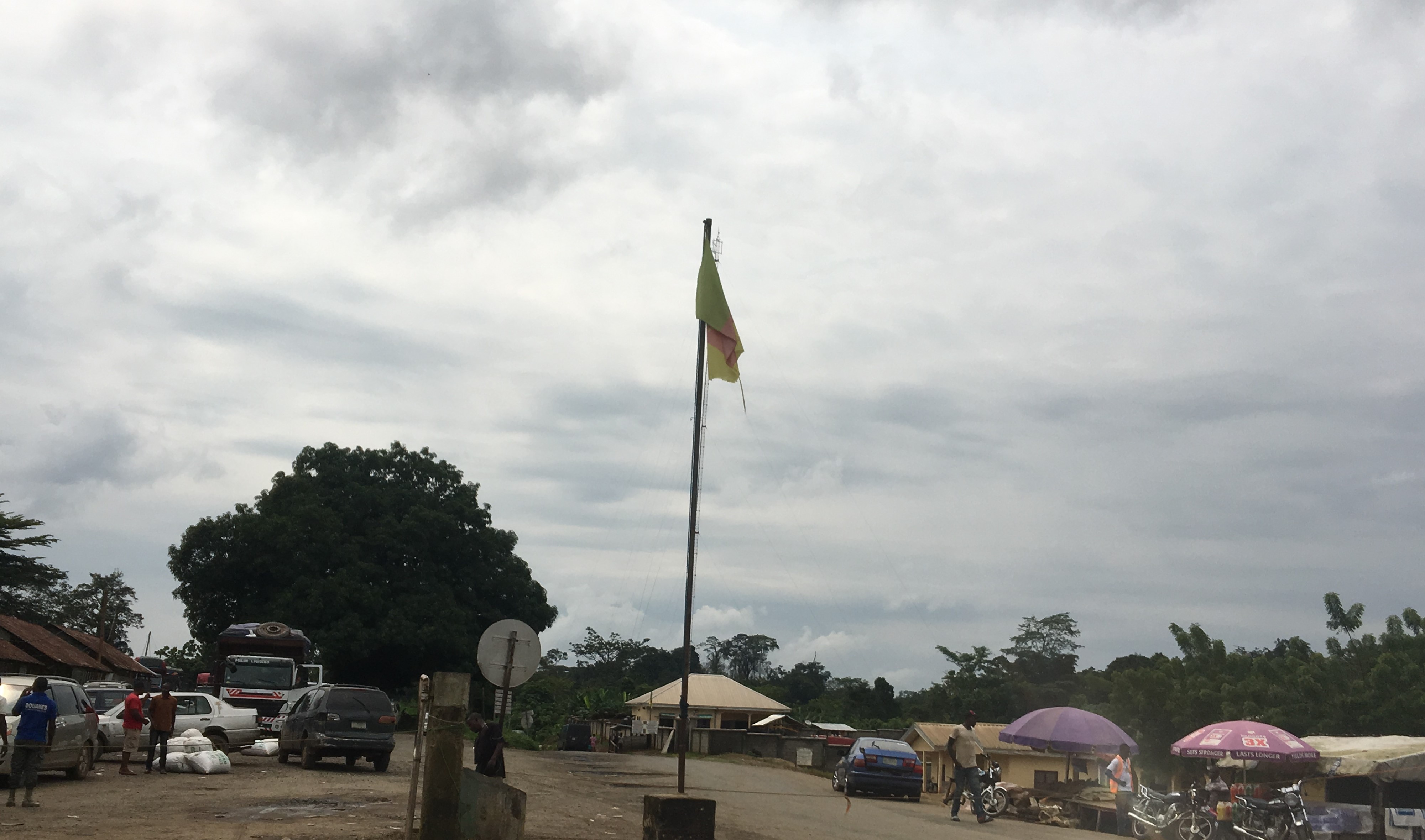
But this is only if they search you. It turned out my returning was easier and almost without stress as none of the officers bothered to search me even though I had just spent a long time across the border. My only issue, it seemed, was with a Cameroonian immigration officer who insisted on knowing why “Chinedu” is about the only name Nigerians prefer to answer. “Una too like to dey answer the name,” he kept saying.
HOW TO ESCAPE BORDER SECURITY
Advertisement
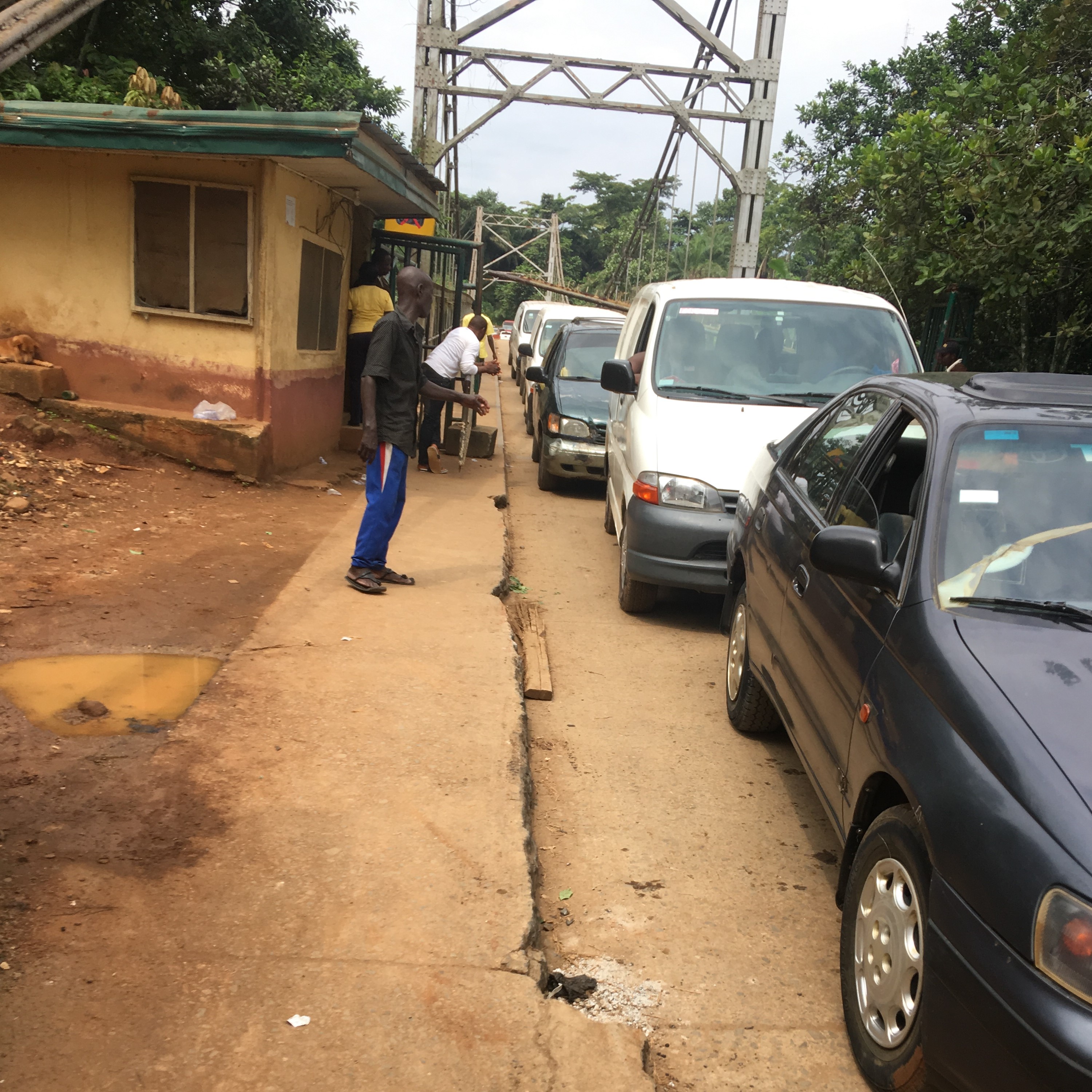
I was back at the Nigerian security post and this time, not a single word from any of the officials nor any attempt to search me to be sure I was not bringing in any prohibited item. What if I went to collect dangerous weapons like bullets and secure them somewhere in my clothes? What if I had drugs stuffed in my underwear? All the clearance I needed to pass was — wait for it — flashing all the teeth I’ve got.
The man conveying me would later explain why this was so: “They didn’t search nor ask you of your documents because you are looking decent; you don’t look like travellers.
Advertisement
“Even while you were going, with the way you are looking, they will not suspect you as somebody that is going far into Cameroon. You look simple and nobody will suspect you are carrying anything.” So, there you go, try to look decent and avoid bags as much as you can.”
HOW ABOUT LETTING ‘CHARM’ DO THE WORK?
Advertisement
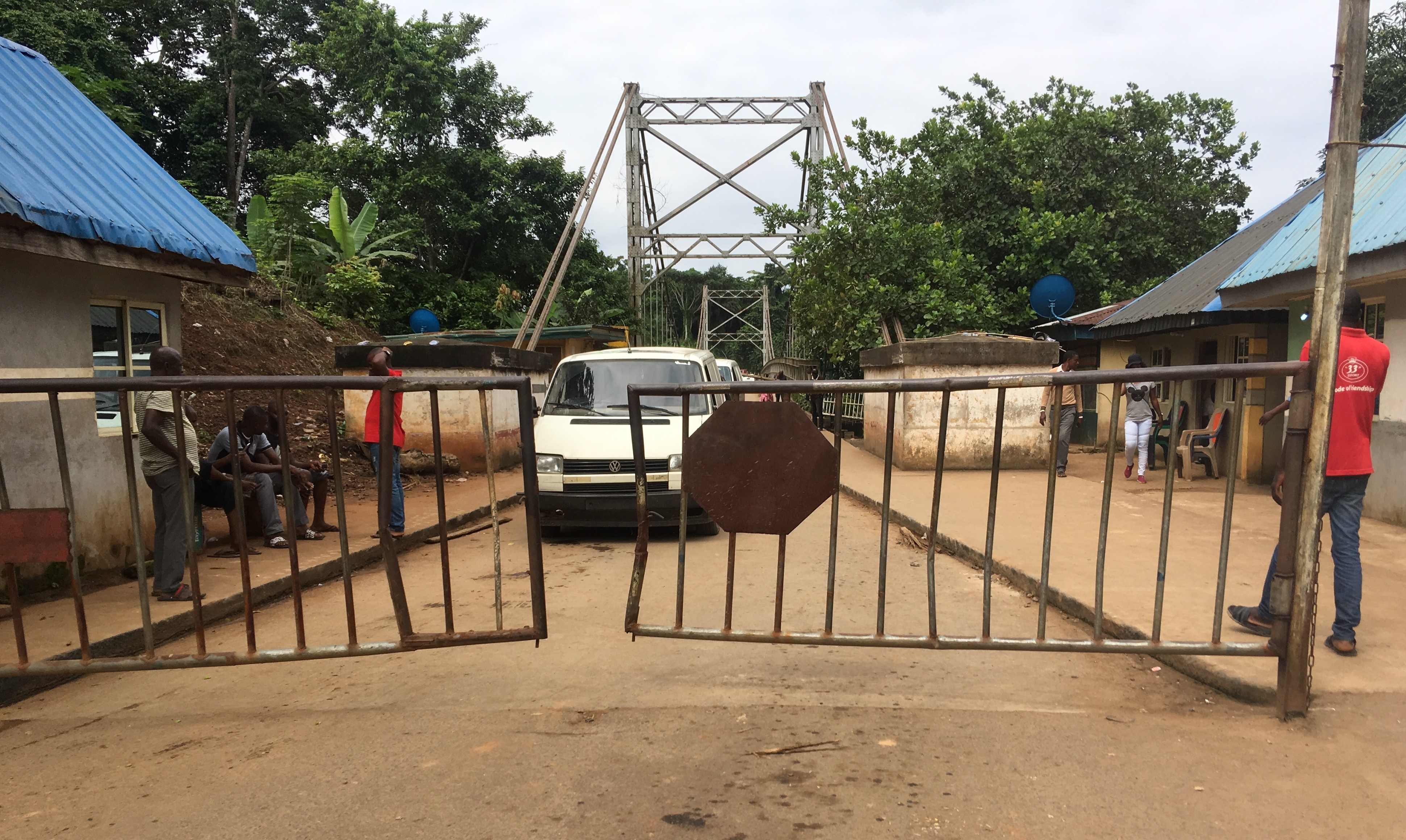
Mbom added that part of what the security operatives at the border use is “jazz” (better known as charm) — yes, you heard right. He confided in me that this is to ensure they stay on “top of their game” especially considering there are “occasional” attempts to smuggle things in.
With the jazz, “they know everything,” he says. “Even though you want to carry cocaine, they will discover. Because many of them there are not empty, they are with jazz. They use jazz to see things,” he says with all sense of authority.
Advertisement
‘BULLETS IN GARRI, COCAINE IN TIRE’
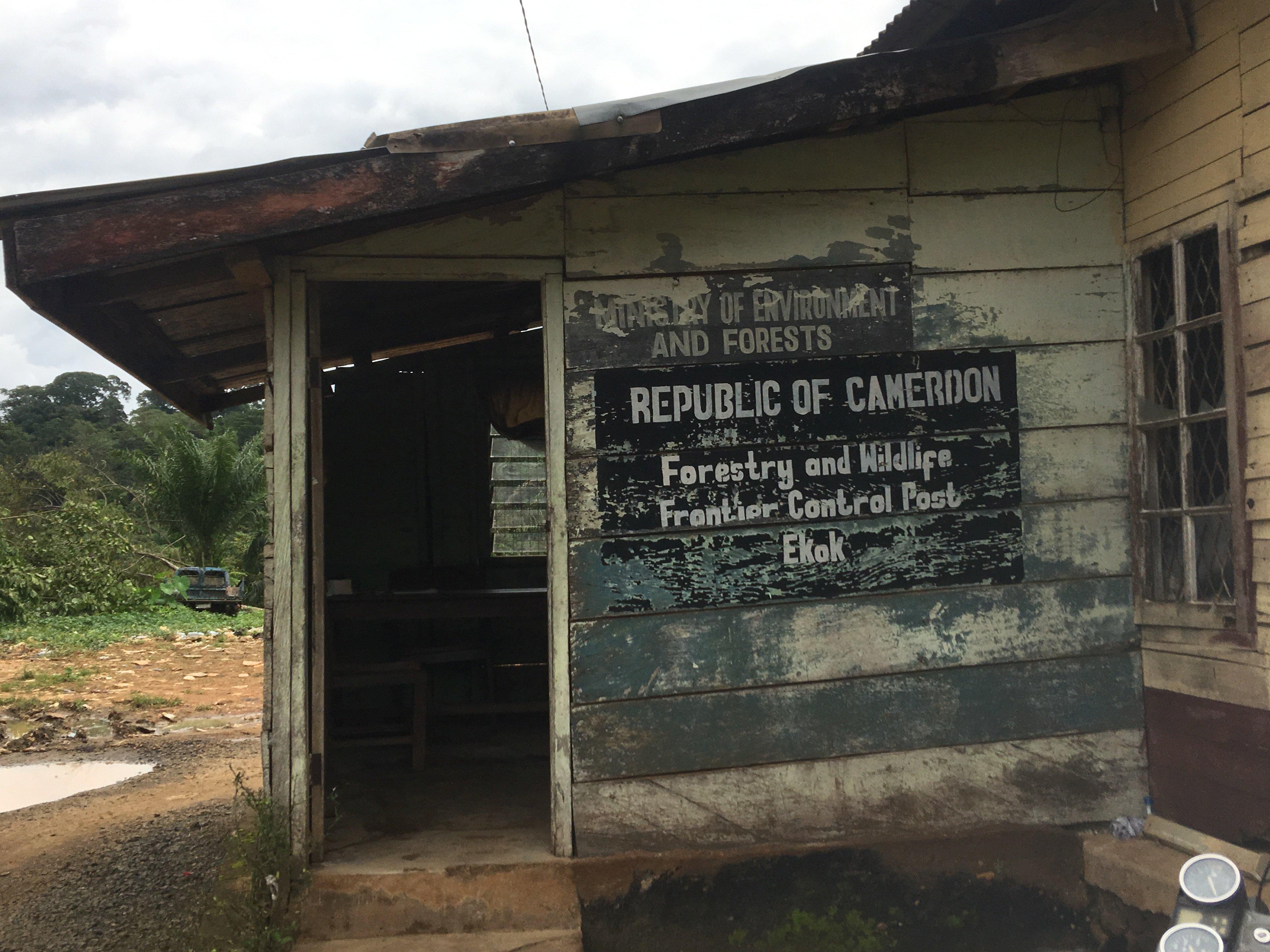
Nigeria is said to have up to 1,400 illegal border routes with only 84 approved land border control posts. This explains the country’s long history with the smuggling of arms and all sorts of prohibited items. For instance, in 2018, Abdulrahman Dambazau, then minister of interior, said 70 percent of the 500 million illegal arms that were smuggled into West Africa end up in Nigeria while the senate once said that goods worth N7 trillion are smuggled into the country yearly.
How then do all of this find their way into the country? “People employ all kinds of tactics here to bring in items like weapons and cocaine,” Mbom responded when I asked him how I can bring in some forbidden items. “There is one man I carried one day, he gave me a carton of noodles but I never knew what was filled in the carton was money and not noodles until they found out.”
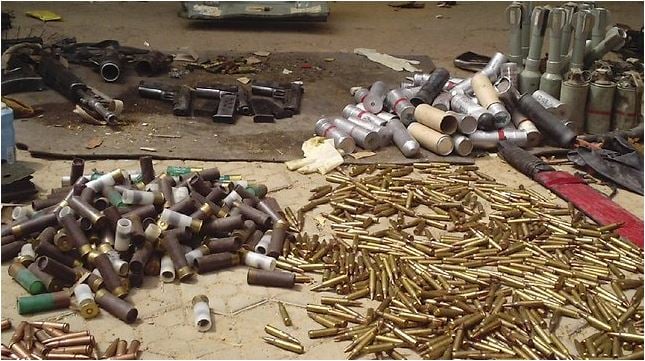
He added that there have been many cases where people were caught with prohibited items like bullets stuffed in garri.
“Sometimes you see someone with tire wrapped but inside it is another thing like cocaine. The other day they discovered bullets inside garri bag. They are fighting war there so they don’t need any dangerous thing.”
Fuel is also being moved except in this case, from Nigeria to Cameroon. The bike man said this is because “their fuel is not as good as our own (Nigeria’s); a litre of theirs cannot take you up to 30 minutes unlike ours.”
‘YOU’D NEED THE RIGHT PERSON TO MOVE IN YOUR ITEMS’
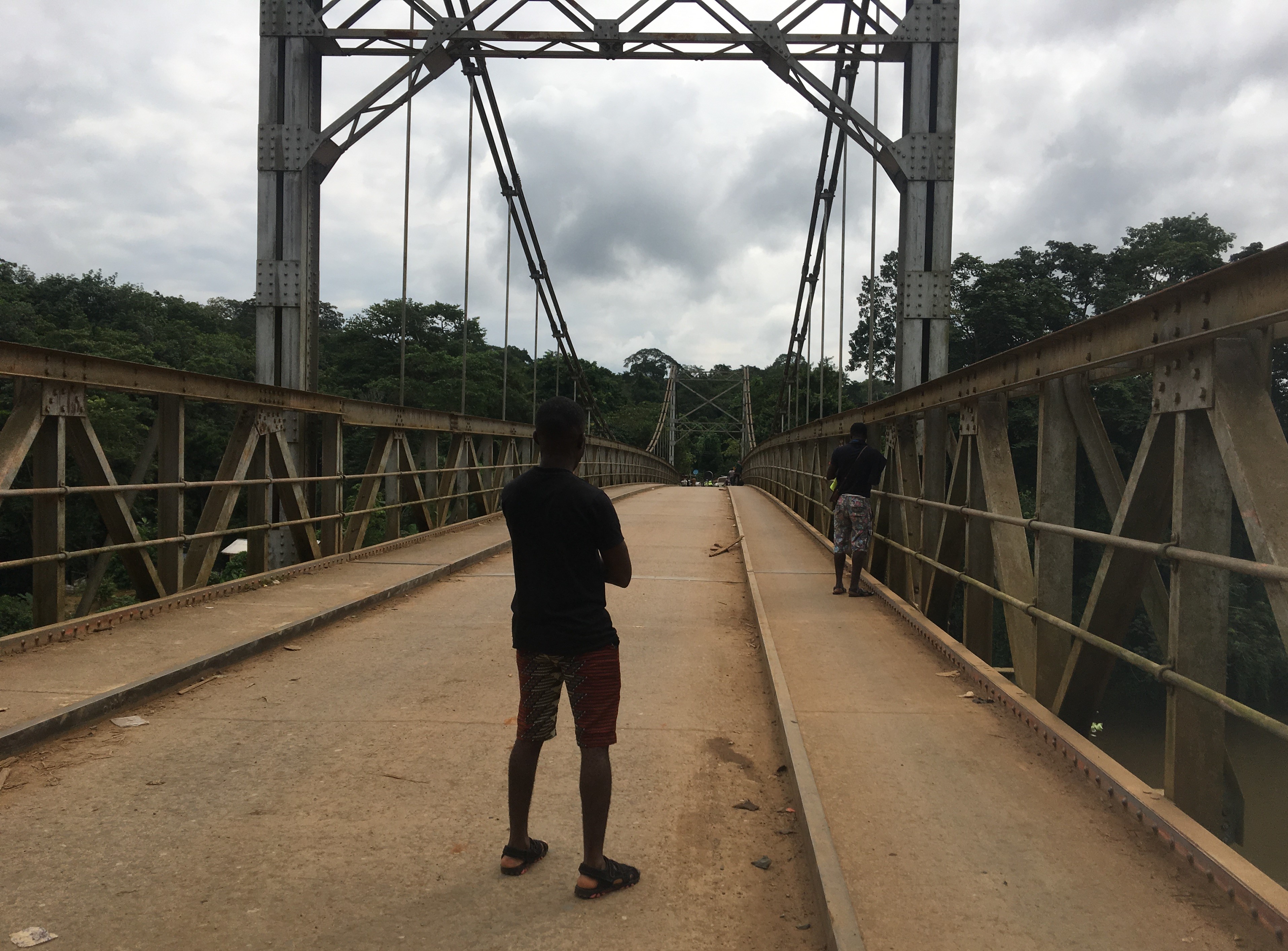
Apart from dressing decently and without baggage, as well as knowing where to put what, my fixer told me I must also ensure I find the right person to help move whatever I have. “As you can see there are registered bikes transporting people and things through the border,” he said. “But not everyone can do this. E get pros wey sabi business well; na them go handle am.”
“You know everything now is money (so) it depends on the negotiation between you and your driver,” he added, as if speaking from experience. “The driver knows how to cross it for you and you will pay him.”
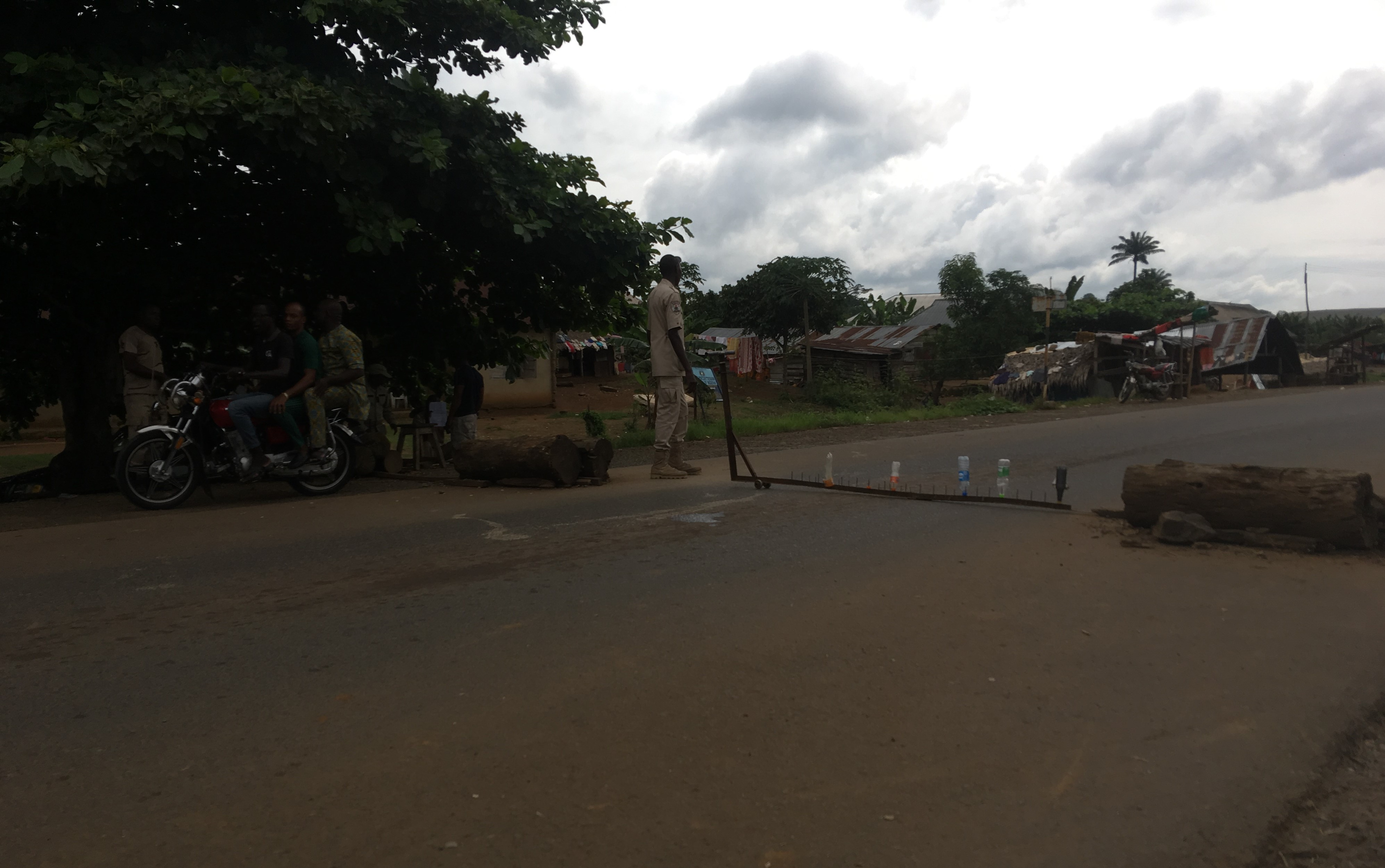
His submission was amazing, no doubt, so I asked him if he could help me transport some forbidden things into Nigeria from Cameroon. I had barely finished when he interjected, “no o.” He sighed and proceeded in a regretful tone: “It is just that these days you find it difficult to do business. Before, you can cross all day. But things have changed because of the war in their country. They even lock the gate by 6pm unlike before. But if you really want to, that won’t be a problem.”

